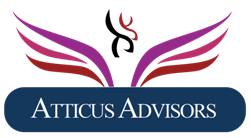It’s often said that doctors make the worst patients. They know too much, self-diagnose, and rarely take advice. The same could be said for consultants—the “doctors” of the business world. When consultants advise other consultants, a paradox emerges: expertise, while invaluable, can also blind professionals to fresh insights and evolving realities.
This blog explores how over-reliance on expertise, confirmation bias, and intellectual entitlement can hinder business outcomes, drawing lessons from consulting experiences and their broader implications for leaders.
Consultants as Business Doctors
Much like medical doctors diagnose and treat ailments, consultants are called upon to identify and solve business problems. There are “strategy doctors,” “sales doctors,” “innovation doctors,” and specialists for virtually every business function. Yet, what happens when these “doctors” are called to treat their peers?
As one consultant’s experience highlights, working for other consulting firms often leads to friction. The problem isn’t technical expertise but rather the dynamics of dealing with professionals who are used to being the smartest people in the room. When these seasoned consultants seek external help, their intellectual pride and rigid thinking can create barriers to effective collaboration.
The Pitfall of Intellectual Entitlement
A telling example involves a brain surgeon critiquing a marketing strategy, despite having no expertise in the field. His reaction stemmed from a career built on trust, precision, and high-stakes decision-making. This sense of authority, while justified in a medical context, doesn’t translate to all areas—especially when it comes to unfamiliar domains like marketing.
Similarly, consultants often operate as the “brain surgeons” of business. Their success hinges on knowing the answers, solving problems efficiently, and guiding clients with authority. However, this mindset can stifle curiosity and openness, particularly when faced with novel challenges.

The Danger of Confirmation Bias
Confirmation bias—the tendency to interpret information in a way that confirms existing beliefs—can be detrimental in both medicine and business. A tragic example from Tufts Medical Center illustrates this: a patient’s death resulted from clinicians ignoring clear warnings because they “saw what they expected to see.”
In the business world, this bias manifests when consultants, armed with years of experience, overlook market shifts or dismiss alternative data. Companies often fall into this trap, especially when they place seasoned consultants in leadership roles within historically successful divisions. While these experts excel at maintaining the status quo, they may miss signs of disruption, leaving businesses vulnerable.
Balancing Expertise with Curiosity
Steven Levitt, author of Freakonomics, draws a compelling distinction between academia and business. In academia, success is rooted in admitting what one doesn’t know and pursuing new learning. In business, however, leaders are rewarded for their knowledge, which can discourage curiosity. In a rapidly changing world, this lack of curiosity can be fatal.
To thrive, businesses need leaders and consultants who balance expertise with an open mind. The best consultants are those who ask questions rather than assume they have all the answers.
For founders and business leaders, the lessons are clear:
- Challenge Expertise: When hiring consultants, prioritize those who approach problems with curiosity and humility. A consultant confident in their ability to diagnose without truly understanding the context may not be the right fit.
- Guard Against Confirmation Bias: Ensure that decision-making processes incorporate diverse perspectives and data points. Encourage teams to challenge assumptions and explore alternative solutions.
- Foster a Culture of Learning: Create an environment where admitting gaps in knowledge is not seen as a weakness but as a strength. This mindset fuels innovation and adaptability.
Expertise Is Not Enough
In the world of consulting—and business at large—expertise is invaluable but not infallible. The next time you consider hiring a consultant, look beyond their credentials. Ask whether they’re genuinely curious about your unique challenges or if they already “know” the solution.
In a dynamic and unpredictable market, the best partners are those who combine experience with a willingness to learn. How do you ensure that expertise doesn’t blind your business to new opportunities? Share your thoughts in the comments!
